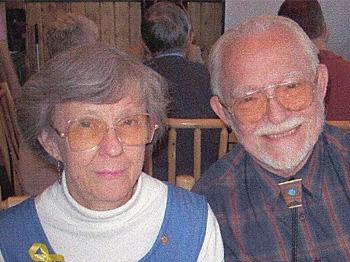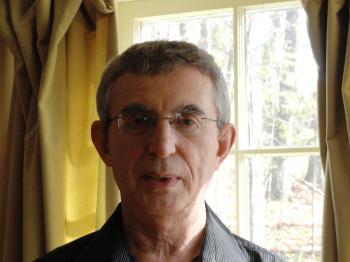Hilby, “the skinny German boy,” says, he is a happy man. He has no nightmares.
The nearest he came to one was when he dreamt that he broke his guitar.
He shares his joy by juggling and clowning to audiences. Though he has been to 64 countries, he was shaped by five: Germany, Japan, India, New Zealand, and the United States—where he can be “who he wants to be.”
He was born in Wiesbaden. At age two, he was adopted by a Bavarian family. He remembers the taste, smell, and sights of life in the country: his joyride on trucks of sugar beets; making sausages; and the aroma from the bakery.
It ended abruptly when his mother took him away from his adoptive family. Others might see this moment of change as a wound, yet Hilby will not lament, for he sees his life’s trajectory as most fortunate.
His father, a blue-collar worker, was “non-judgemental,” and Hilby learned to be like
him. His father’s influence helped him become a citizen of the world in his travels.
At the under-14 national soccer camp in Berlin, though he was selected for the “youth national team” he learned “that competitive sports” was not his “calling.” The realization only made him more like his father.
From Japan he learned how unfailing courtesy might be extended on meeting a foreigner. Of all the countries, New Zealand was the most paradisical. He could walk barefoot across the country to a rain forest, go past snow-capped mountains, across hills and valleys; and be with penguins. No animals preyed on him, a wanderer.
But, the country that stays at the apex of his experience, struck him as the polar opposite of Japan. In Benares (Varanasi, India), he loved waking to the “early morning wood-smoke” over the sacred Ganges—the river of initiation and expiation, the mythic river for the living, the dying, and the dead.
In Benares, he lived on a houseboat on the Ganges; the Swede who shared the houseboat with him taught him juggling in 15 hours. Juggling gave Hilby a new start. Paradoxes and opposites co-existed in his experience of India. Stalin’s daughter, Svetlana, had claimed that the holy Ganges had the magical power to heal. She took early morning dips in the Ganges. Unlike her, Hilby did not experience any magical benefits from swimming in the Ganges.
He says, “Scientists tested the water of the Ganges frequently and found it alarmingly polluted.” But, his yoga teacher drank the water daily, and the man was the picture of health.
He says, “I would not go as far as to say that people become well drinking from the Ganges River. I do believe in the power of projection but it is different for each person. I personally did not get well or sick physically, but gained tremendous spiritual enrichment from Benares and the Ganges.”







